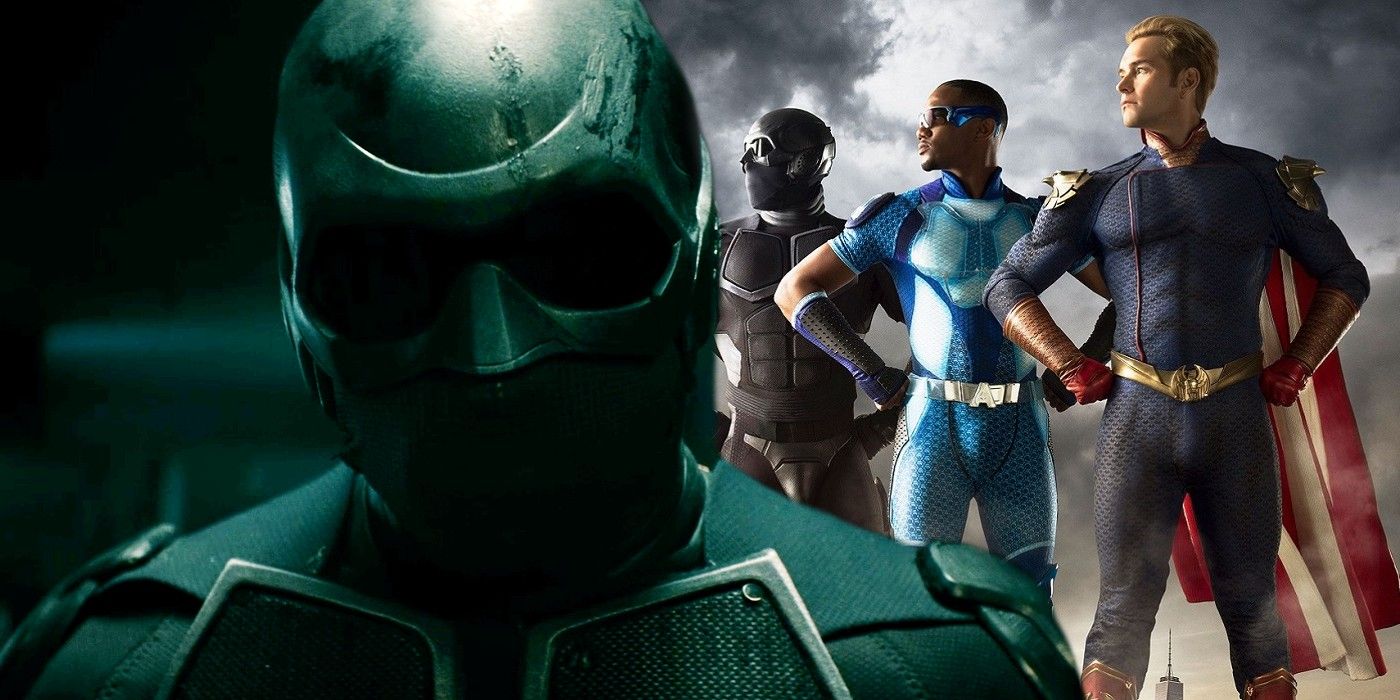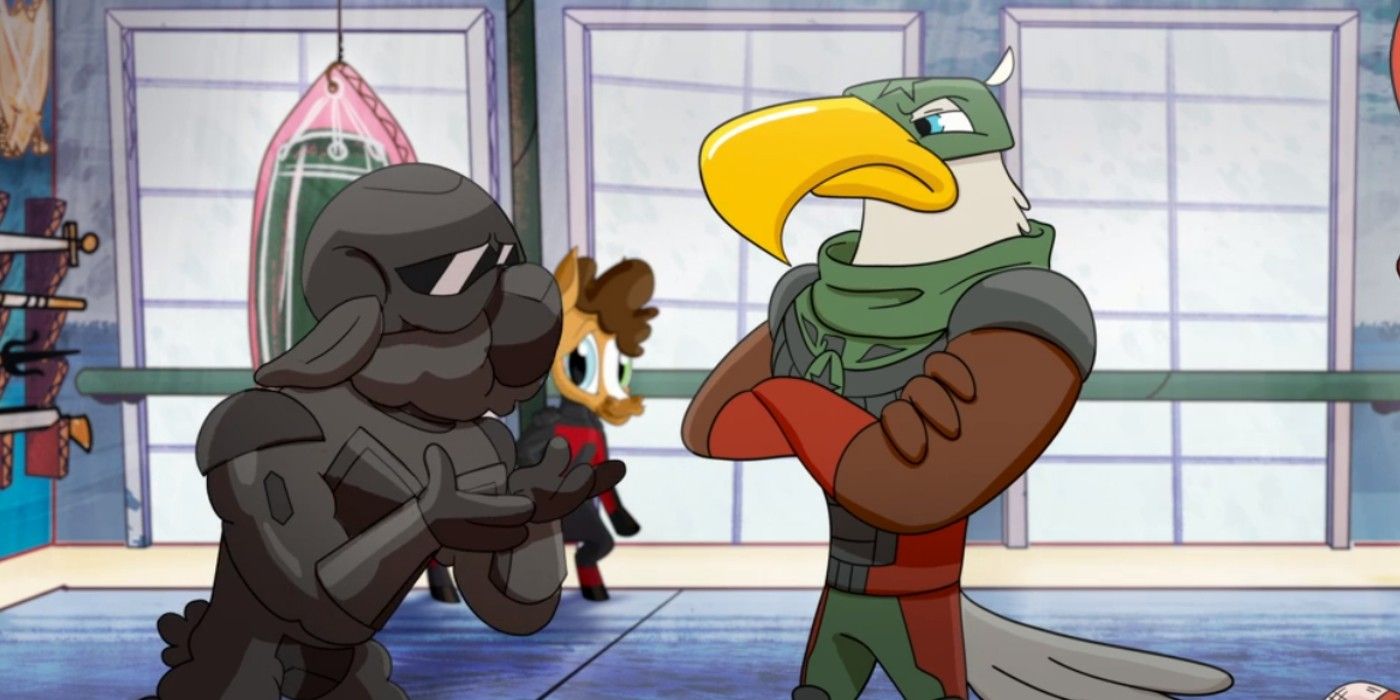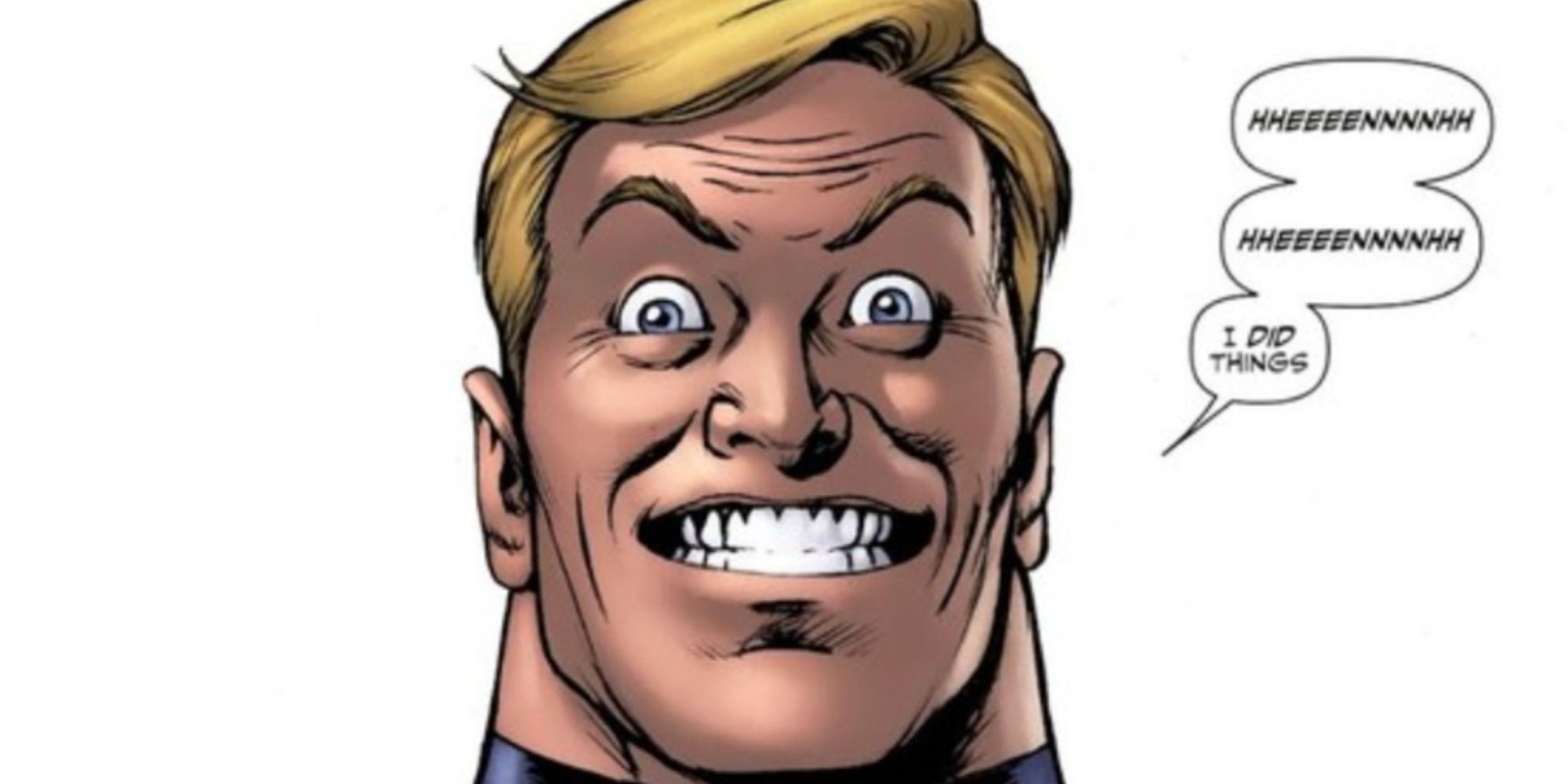WARNING: Spoilers ahead for The Boys season 3, episode 7
The Boys' Black Noir just went from the Seven's most enigmatic to the Seven's most tragic. Professional, silent, deadly - Black Noir is the bass guitar of the Seven, reliably unnoticed in the background but dearly missed when not around. In keeping with his character, The Boys seasons 1 & 2 revealed precious little about the man under the mask, save a few sporadic details such as his skin color, his Payback history, and a deadly nut allergy.
The Boys has blown the book of Black Noir wide open in season 3. A flashback to Payback's fateful Nicaragua mission unveiled the supe's face in full, and Noir spoke onscreen for the very first time. Nicaragua is also where Noir suffered the scarring seen briefly in season 2, and where he permanently lost the ability to speak. The Boys' first flashback made it look like Noir received those injuries in the explosions and gunfire between Russian special forces and Payback, but The Boys season 3, episode 7 ("Here Comes A Candle To Light You To Bed") replays that same story from Noir's own perspective.
Not only does The Boys make audiences rethink their stance on Vought's "Silent Knight," the episode spins a deeply upsetting backstory that even Pixar would give a teary-eyed nod of approval. Dropping secrets from Black Noir's childhood right through to The Boys' modern day, here's why we're definitely not crying about Black Noir right now...
Black Noir's Tragic The Boys Backstory Explained
The Boys season 3 reveals how Black Noir lives (part-time, at least) in an abandoned Chuck E. Cheese ripoff called Buster Beaver's Pizza Restaurant. This plastic-n-puke palace is where Noir accidentally paralyzed a boy called Lewis Frankel and, ever since then, "Earving" has hallucinated Buster Beaver and the other colorful critters as a coping mechanism. The animated Buster takes credit for guiding Noir through difficult life moments, including Lewis Frankel's paralysis and the Lagos incident Robert Singer described as a war crime earlier in The Boys season 3.
As a general rule, Seven members either don't kill civilians at all (Starlight), try not to kill civilians but get drunk when some die anyway (Maeve), or kill civilians and sleep like a baby (the rest of them). The Boys' Buster Beaver revelation portrays Black Noir as a sensitive supe who does feel guilt whenever collateral damage happens, but relies on imaginary friends for therapy. Turns out Earving isn't quite the cold, calculating killer Vought wants their customers to believe.
The pizza animals then act out what really happened with Payback, showing how Soldier Boy brutally beat his team mates and deliberately stopped them gaining popularity - even blocking Black Noir from playing Axel Foley in Beverly Hills Cop. Earving has forever been a follower. Whether it's Soldier Boy, Homelander or Stan Edgar giving the orders, Black Noir simply does as he's told - a trait Soldier Boy already mentioned while hunting down Payback in the present timeline.
The real tragedy of Noir's story lies in how the weapon that could've stopped him getting pushed around - his voice - was cruelly taken away. By injuring Noir so badly he couldn't talk, Soldier Boy left his teammate no means of standing up for himself, and no way of processing trauma other than make-believe animals invented during childhood. The Boys proves Black Noir wasn't just "not such a bad guy" - he actually could've been a good guy were it not for the relentless punishment inflicted by others, and the deep-seated traumas he couldn't verbalize.
How The Boys Season 3's Black Noir Twist Improves The Comics
The Boys season 3, episode 7 pulls Black Noir even further from Garth Ennis' comic books than Amazon had strayed already. The source material's Noir remains masked until the very end, where he's shockingly revealed as a Homelander clone even more depraved than his doppelganger. Noir would frame Homelander for horrific acts purely because he wanted to fulfill his initial purpose of killing the Seven's leader. The Boys season 3's Nicaragua flashback already made that ending highly unlikely for live-action, but "Here Comes A Candle To Light You To Bed" finally puts the comics' Black Noir twist to bed.
Despite marking a hefty deviation from the printed page, Amazon's The Boys actually improves upon what came before. Black Noir's comic ending works as a shocking payoff to a long-running mystery, but because the secret villain is killed only a few panels later, the plot twist lacks any emotional resonance. Airing more than a decade after the comics released, The Boys doesn't even have the element of surprise, meaning a new direction for the Seven's black-clad enigma was always needed.
Whereas Garth Ennis' comics used Black Noir's covered face and constant silence to fuel a storyline mystery, Eric Kripke's TV show turns those same unmistakable elements of Noir's character into a sad tale of how Vought corrupts decent heroes. Where comic Noir stayed anonymous to keep his dirty secret, live-action Noir wore a mask and stayed silent because of what others did to him. Both interpretations have merit, but only The Boys season 3 leaves a lump in the throat as a lonely Black Noir sits surrounded by imaginary animals regretting the past...
Join Amazon Prime - Watch Thousands of Movies & TV Shows Anytime
Want To Read More The Boys Content? Check Out Our Content Below...
- Homelander’s Secret Completely Changes The Boys’ Past & Future
- The Boys: Herogasm - All You Need To Know About Season 3's Superhero Party
- The Boys’ Herogasm Beat The Hype (But Not For The Reasons You Think)
- How Hughie's Powers Work In The Boys (& How Strong Is He?)
- The Boys Is Heading For Butcher's Comic Ending (And It Really Shouldn't)
- Homelander vs Soldier Boy: Who Would Win & Who's More Powerful?
- Does Homelander Die In The Boys Comics (& How)?
- Why Kimiko Can't Speak In The Boys
The Boys continues Friday on Prime Video.



